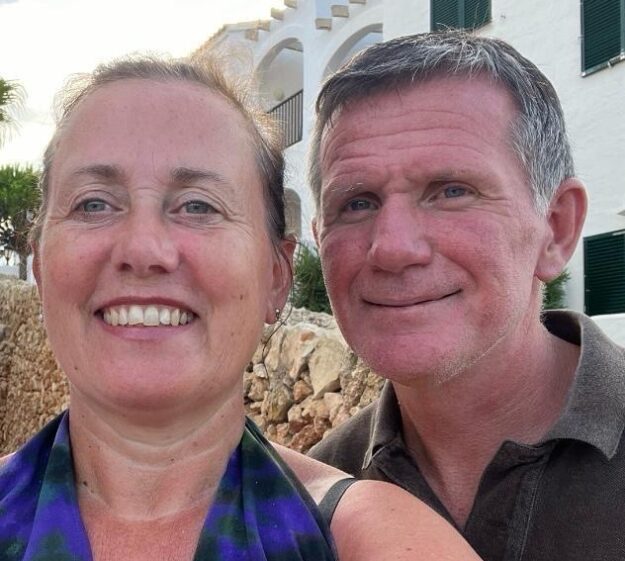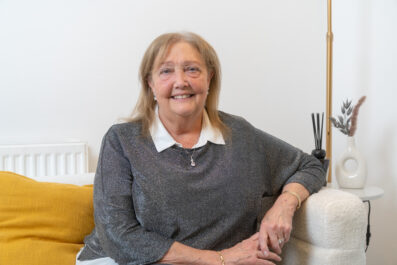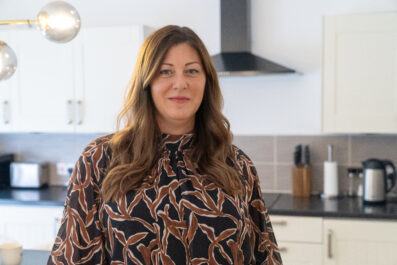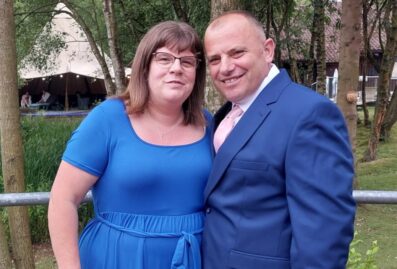Gerard’s fostering story
Gerard fosters with Foster Care Associates (FCA) Northern Ireland and says being a foster parent has taught him invaluable lessons about masculinity and fatherhood.
Fostering since February 2021 alongside his wife Siobhan and three children, Gerard said: “Fostering can really change how someone sees fatherhood and masculinity because it changes the idea of only being strong or tough to being more patient, understanding, and just being there for a child.”
“Being a foster parent has made me realise that being a dad isn’t just about providing or setting rules—it’s about offering emotional support and making sure a child feels safe and cared for.”
Fostering is still seen as a largely female role, with statistics from fostering charity The Fostering Network showing that in 2024, 82 per cent of foster parents in Northern Ireland were women, but Gerard believes men have a crucial role to play in the care system.

“There’s a stereotype that fostering is a maternal role,” said Gerard, “But a supportive male figure can be life-changing for a child. Especially one who’s had negative experiences with men in the past. Male carers show that masculinity can mean being kind, present, and emotionally open.”
Life as a foster dad has helped Gerard talk about mental health in a safe and open way benefitting not just the children in his care, but him and his family too, and he believes that men should feel inspired by foster care to start having the more difficult conversations.
He said: “Men’s mental health goes way beyond just visiting a doctor. I feel it’s about having good everyday habits, support systems, and not conforming to traditional stigmas.”
“This means learning to express emotions, recognising when stress is building up and admitting it, and finding healthy ways to cope, whether that’s through talking to friends, exercising, creative outlets, or just taking time to reset.”
“I feel the most important thing is building strong connections with people who listen to you and offer their advice based on their experiences.”
“Previously, men were expected to “tough it out” or “stay silent” about struggles, but prioritising mental health means recognising that strength is about knowing when to ask for help when you need it.”
Ciara Doyle is the registered manager at FCA Northern Ireland and said: “Men can make an incredibly powerful impact as foster parents and we’ve seen first hand how the foster parent assessment process and training can be really helpful to foster dads too.
“We have foster dads who are the primary carer, those who are single, and those who are part of the LGBTQIA+ community all making a wonderful difference to our children and young people and would love to see more men getting involved to change a child’s life.”
Gerard grew up in a large family which helped him make the decision to foster, he said: “I understand some of the struggles the children go through when it comes to socio-economic difficulties, but having a large family around me made the experience easier. I wanted others to experience the stability of a family home, and so fostering was always something we had on our minds.”

Interested in fostering?
Call our friendly team for more information on fostering in the Northern Ireland, or throughout the UK.
We’ll answer any questions you might have and support you through every step of the application journey.
More fostering stories:
Looking for a new career path?
Find out how you can make a difference…
By Phone
Call a member of our friendly fostering team and they’ll be able to answer all your questions
By Email
Email our team by completing our online enquiry form
Visit an office
We are always happy for you to pop in for a chat





